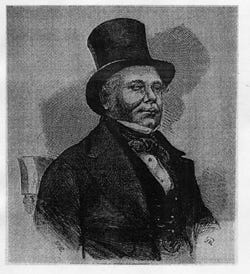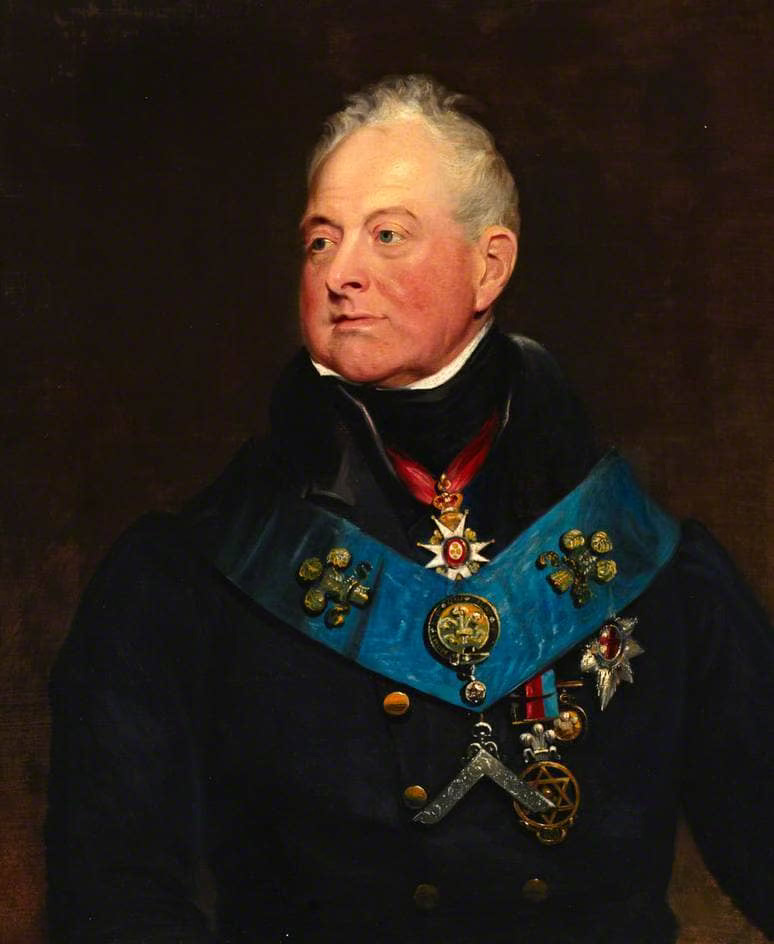The lesser-known partner
Charles Field was a well-known police detective turned private eye - but who was his lesser-known and upper-class business partner?
Charles Field was a Metropolitan police detective in the mid 19th century, so well known that Charles Dickens used him as the basis for Inspector Bucket in Bleak House. After retiring from the force in 1852, he became a successful private detective, being involved in the Rugeley Poisoner murder case of 1856 when he investigated the murderer, William Palmer's, financial dealings. He was a controversial character, who used his former police rank to get him results; in fact, the Met was so concerned about him at one point that they temporarily withdrew his police pension from him.
Charles Field
Field died in September 1874, but this was not the end of his detective career. For several years after his death, press adverts were placed promoting Field & Nicholls' detective office, and highlighting Field's former status as 'late chief of the Metropolitan Detective Police'. His partner in the office was 'C Nicholls' (no police rank given) and the private detectives operated from 33 Essex Street, Strand, in central London.
How could Field have still been operating after his death, and who was the mysterious C Nicholls who he was supposed to be working with?
Mr Nicholls was born Charles Kerry Whitaker in 1812. He was born in the Strand area, and baptised at St Martin in the Fields alongside his brother Reginald. Their parents, Charles and Elizabeth, lived a comfortable life at 1 Charing Cross Road. By the age of 16, Charles was living south of the river, on Camberwell New Road, and had started work as a clerk to solicitor Henry Rodolph Wigley. On his coming of age in 1834, Charles Whitaker was presented to the king, William IV, by the Earl of Falmouth, giving an indication as to his status (his mother was also said to be the niece of an earl).
William IV: Charles was presented to him when he came of age in 1834
In the same year, Whittaker became Charles Kerry Nicholls. This was not in order to hide from creditors, or for any other nefarious reason; he had simply applied to change his name in honour of his late uncle. Sir Henry Nicholls of Clifton, Bristol, was an admiral who had died four years earlier. He was single, and so his nephew inherited from him. Sometimes, it was a condition of inheriting that the beneficiary change their name to that of the deceased, and so Charles Whitaker asked the king to grant him authority to use the surname of Nicholls, and to pass that name onto his own descendants. The king duly granted his royal licence and authority for Charles to do so. Although when he married in 1836, he used his birth name, for all other purposes, he would always now be known as Charles Kerry Nicholls.
Although Charles was from a very good background, and had every opportunity, his life was not always straightforward. He and his wife Charlotte had invested in the Westminster Loan and Joint Stock Investment Company - a company of which Charles Kerry Nicholls was managing director. In 1843, the company failed. Charles' brother Francis, who was also involved in the company, was sued by another investor - a London engraver - and the case went to court. A few months later, Charles was made bankrupt.
Charles was resilient, however. He re-established himself as a stationer, living in Chelsea with his wife Charlotte and their children (they would eventually have eight). By 1861, he had become a private detective and bill broker, but five years later, in 1866, he was made bankrupt a second time.
He and his family relocated from Chelsea to Lambeth, and he tried a different job - that of wine merchant. In 1873, Charles' wife died, and the following year, he was in court with two of his siblings, suing another relative. He then resumed his private detective career, which appears to have lasted until his death in 1885.
How much did Nicholls work with the successful Charles Field? It's certainly likely that they worked together for at least a spell. Both men had contacts, and Field the practical experience. However, Nicholls seems to have continued to milk the link with Field well after the latter's death. In January 1873, Nicholls was advertising his own private detective office at Devereux Court, stating that he was late of Messrs Field and Nicholls. In August 1874, he advertised as 'C Nicholls, private inquiry office, 33 Essex Street, Strand'. This was a month before Field's death, with there being no mention of the men still being in partnership.
However, adverts in both 1875 and 1876 refer to Messrs Field and Nicholls' detective office, despite Field now being dead. So for much of his detective career, Nicholls worked on his own - but he would use Field's name on many occasions to boost his credentials. If anyone ever picked up on the fact that his partner was actually a deceased man, they kept it quiet.






Very interesting.